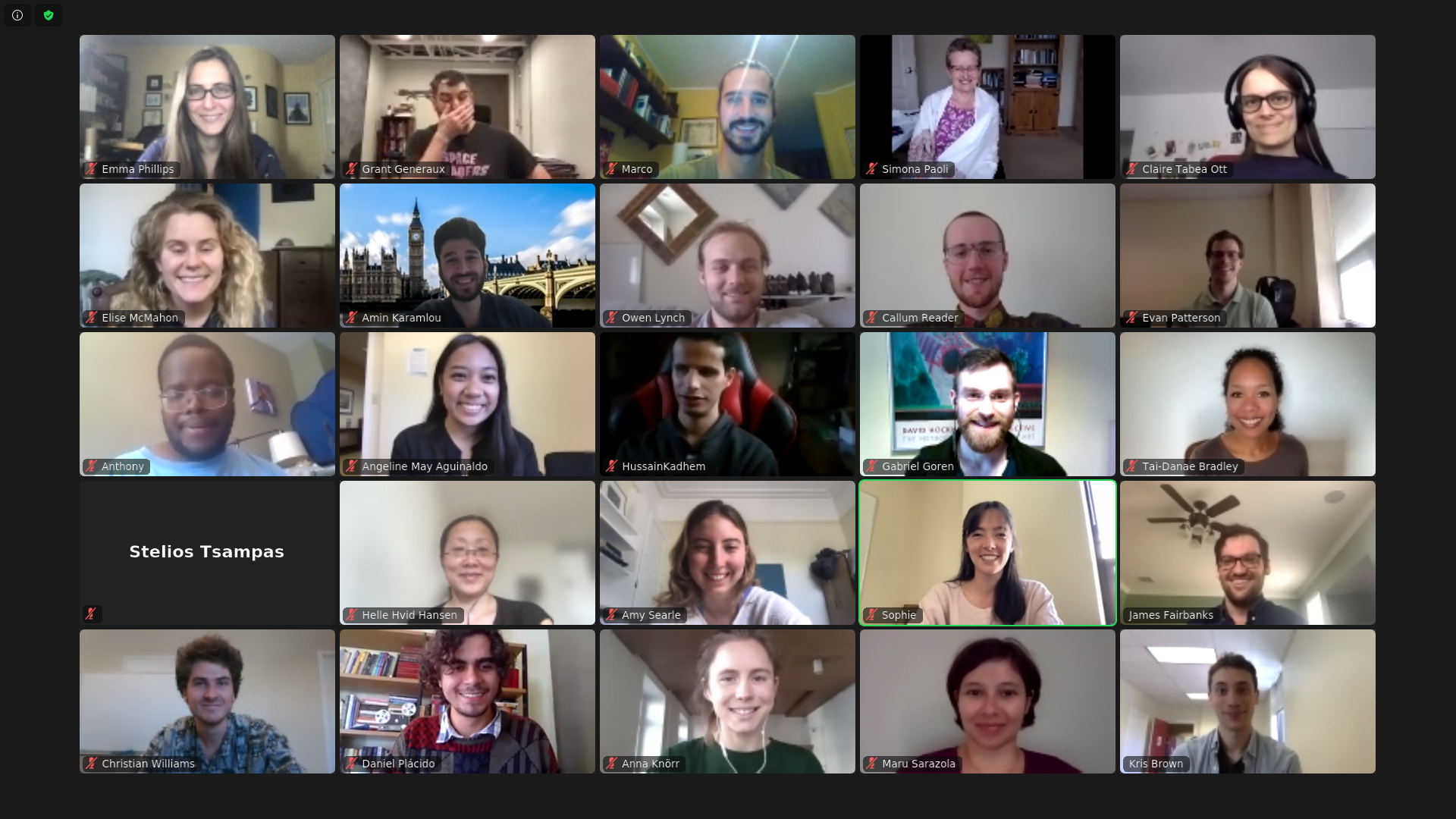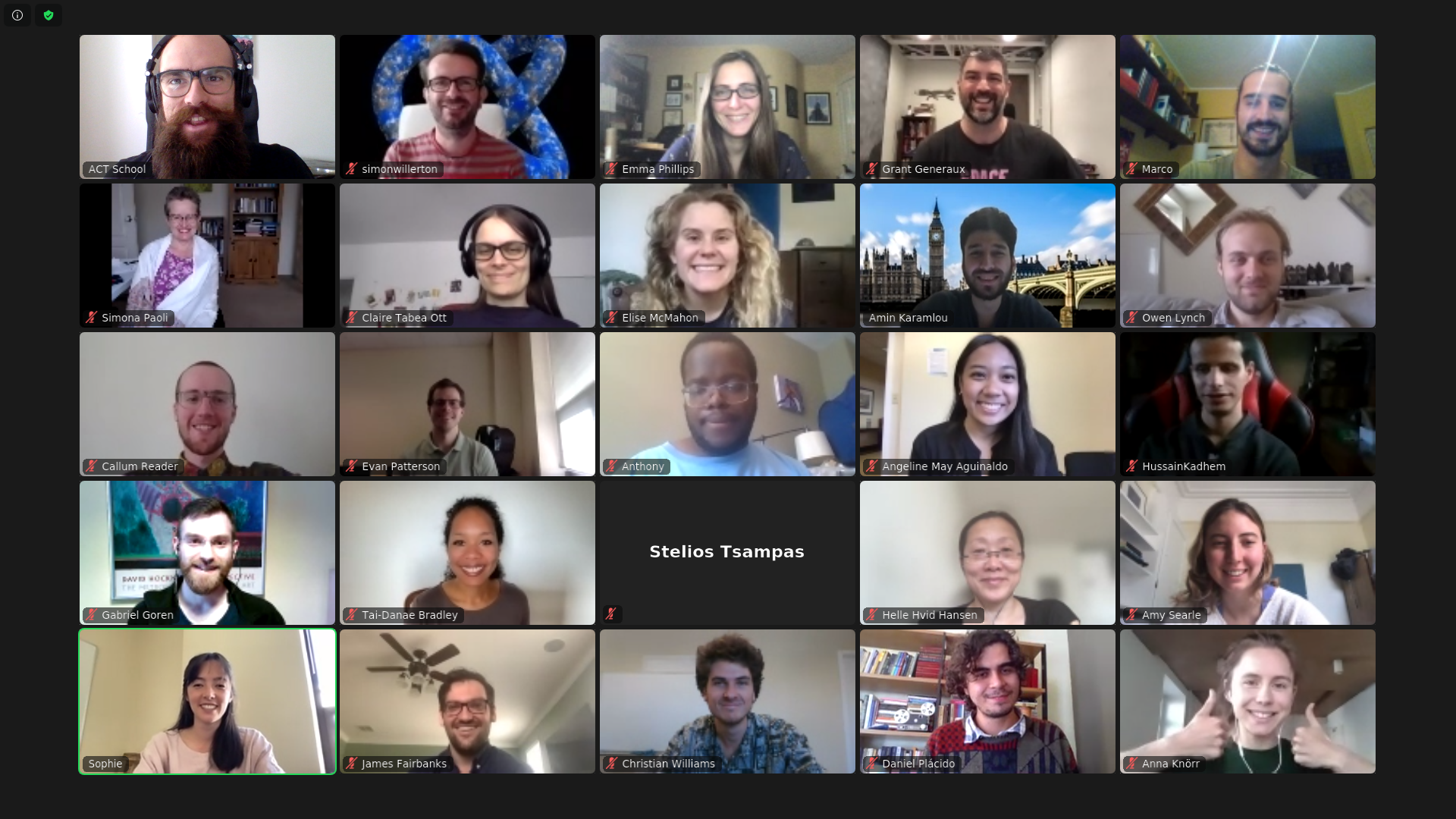The Adjoint School 2021
The 2020 Adjoint School featured projects mentored by James Fairbanks, Evan Patterson, Simon Willerton, Simona Paoli, Helle Hvid Hansen, and Clemens Kupke. It was organized by Sophie Libkind and David Jaz Myers. The research week was held online "at" the University of Cambridge.


Research Projects
Categorical and computational aspects of C-sets
Mentors: James Fairbanks and Evan Patterson
TAs: Owen Lynch and Christian Williams
Students: Angeline Aguinaldo, Kris Brown, Grant Generaux, Anna Knörr, Marco Perin, Amy Searle
Applied category theory includes major threads of inquiry into monoidal categories and hypergraph categories for describing systems in terms of processes or networks of interacting components. Structured cospans are an important class of hypergraph categories. For example, Petri net-structured cospans are models of concurrent processes in chemistry, epidemiology, and computer science. When the structured cospans are given by C-sets (also known as co-presheaves), generic software can be implemented using the mathematics of functor categories. We will study mathematical and computational aspects of these categorical constructions, as well as applications to scientific computing.
Readings
- Decorated Cospans, Brendan Fong
- An algebra of open dynamical systems on the operad of wiring diagrams, Dmitry Vagner, David Spivak, and Eugene Lerman
The ubiquity of enriched profunctor nuclei
Mentor: Simon Willerton
TAs: Tai-Danae Bradley and Callum Reader
Students: Elise Catania, Hussain Kadhem, Owen Lewis, Matt Di Meglio
In 1964, Isbell developed a nice universal embedding for metric spaces: the tight span. In 1966, Isbell developed a duality for presheaves. These are both closely related to enriched profunctor nuclei, but the connection wasn’t spotted for 40 years. Since then, many constructions in mathematics have been observed to be enriched profunctor nuclei too, such as the fuzzy/formal concept lattice, tropical convex hull, and the Legendre-Fenchel transform. We’ll explore the world of enriched profunctor nuclei, perhaps seeking out further useful examples.
Readings
- The Legendre-Fenchel transform from a category theoretic perspective, Simon Willerton
- On the fuzzy concept complex (Chapters 2-3), Jonathan Elliott
Double categories in applied category theory
Mentor: Simona Paoli
TA: Maru Sarazola
Students: Elise McMahon, Claire Ott, Emma Phillips, Daniel Plácido
Bicategories and double categories (and their symmetric monoidal versions) have recently featured in applied category theory: for instance, structured cospans and decorated cospans have been used to model several examples, such as electric circuits, Petri nets and chemical reaction networks. An approach to bicategories and double categories is available in higher category theory through models that do not require a direct checking of the coherence axioms, such as the Segal-type models. We aim to revisit the structures used in applications in the light of these approaches, in the hope to facilitate the construction of new examples of interest in applications.
Readings
- Structured cospans. Baez and Courser
- A double categorical model of weak 2-categories, Simona Paoli and Dorette Pronk
- Simplicial Methods for Higher Categories: Segal-type Models of Weak n-Categories, Simona Paoli
Extensions of coalgebraic dynamic logic
Mentors: Helle Hvid Hansen and Clemens Kupke
TA: Toby Smithe
Students: Anthony Agwu, Gabo Goren, Amin Karamlou, Stelios Tsampas
In this project, we will focus on coalgebraic dynamic logic, a coalgebraic framework that encompasses Propositional Dynamic Logic (PDL) and Parikh's Game Logic. The aim is to extend coalgebraic dynamic logic to system types with probabilities. As a concrete starting point, we aim to give a coalgebraic account of stochastic game logic, and apply the coalgebraic framework to prove new expressiveness and completeness results.
Readings
- Universal coalgebra: A theory of systems, J.J.M.M. Rutten
- Coalgebraic semantics of modal logics: an overview, Clemens Kupke and Dirk Pattinson
- Strong completeness of iteration-free coalgebraic dynamic logics, Helle Hvid Hansen, Clemens Kupke, and Raul Andres Leal